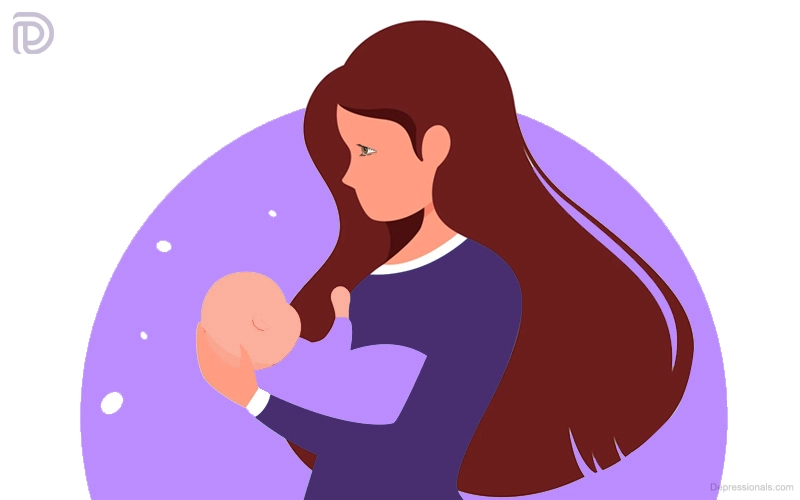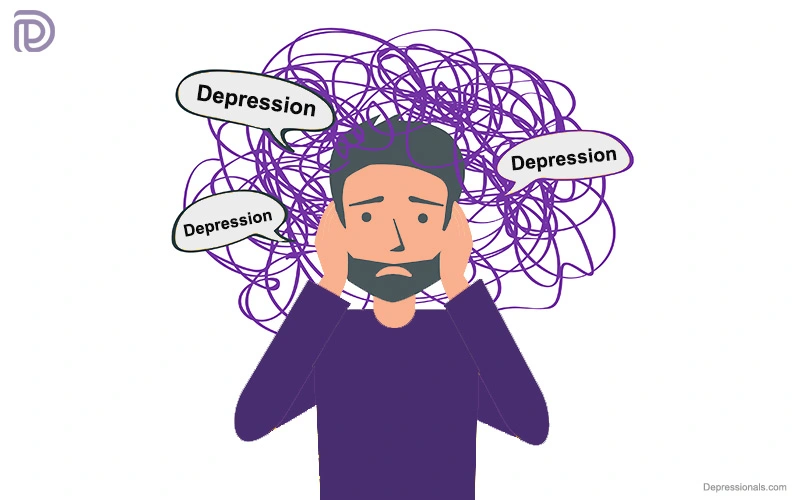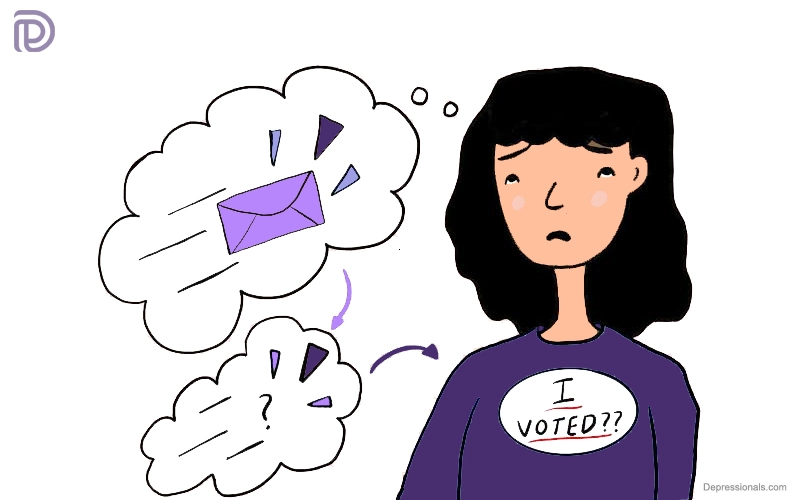Perinatal depression – a depression that occurs after mothers give birth to a child – may be more well-known, but mood disorders occur much more often during pregnancy than experts once suspected.
Now, the term perinatal depression is commonly used to describe prenatal depression and postpartum depression.
Causes and prevalence
An expect mother can experience some of the happiest moments of her life during her pregnancy. But it also puts a lot of stress on the body and can play havoc with hormones.
Pregnancy was once thought to protect women from emotional disorders, but this has since been disproven. Furthermore, postpartum depression has been the focus of a lot of media attention in recent years. It may have taken some time for the word to spread that moms-to-be may experience anxiety and depression due to the combination of biological and emotional factors.
Perinatal depression is now diagnosed based on those symptoms. The prevalence of pregnancy-related mood disorders is estimated to range between 10 and 20 percent. Also, about one in twenty pregnant women in the U.S. will suffer from the major depressive disorder (MDD).
Related: What is Antenatal Depression?
Symptoms of perinatal depression
The symptoms of depression and normal pregnancy are similar. If you have either, you might experience fatigue, insomnia, emotional changes and weight gain. Therefore, depression might go unnoticed during pregnancy.
You should discuss any of the following perinatal depression symptoms with your doctor to identify depression during pregnancy:
- Weeping or crying frequently
- Inability to sleep due to frequent urination
- Fatigue or low energy
- Changes in appetite
- Decreased interest in once enjoyable activities
- Increased anxiety
- Feeling detached from your developing baby (known as poor fetal attachment)
Your symptoms may be more severe during pregnancy if you had depression before.
Related: Anxiety During Pregnancy
Symptoms of baby blues
It is estimated that 80 percent of women suffer from what is known as the “baby blues.”
Your progesterone and estrogen levels rise dramatically during pregnancy. It helps your uterus expand and sustains your placenta. Moods are also affected by these hormones.
Your hormone levels plummet dramatically within 48 hours of the birth of your baby. The baby blues are believed to be caused by a postpartum hormonal crash.
It’s common to have symptoms of baby blues about one or two weeks following the birth of your baby. These symptoms usually disappear after a few weeks. While you wait for this to happen, you might especially feel:
- Irritable
- Anxious
- Frustrated
- Overwhelmed.
- Rapid mood swings (ecstatic one moment, sad the next)
- Exhausted
- Hypersomnia
- Insomnia
Related: Postpartum Anxiety
Symptoms of postpartum depression
Postpartum depression may be associated with the same drop in estrogen and progesterone after giving birth. New mothers are at risk for this form of mental illness in between 10 and 20 percent of cases.
Postpartum depression tends to last for a longer time. If there have been more than 2 weeks since your baby was born, you may be suffering from postpartum depression. You may feel:
- Overwhelmed
- Intensely anxious
- Cry or feel weepy all the time
- Irritable or angry
- Sad all the time
- Completely exhausted
- Worthless, hopeless or guilty
- When you don’t feel well, you may sleep, eat, or eat less than usual
- You may lose your focus or become forgetful
- You may worry excessively about your baby
- You may lose interest in your newborn or cease to enjoy things you used to enjoy
- Headache or chest pain (hyperventilation)
Related: Postnatal Anxiety
Symptoms of postpartum psychosis
Psychosis is a more severe manifestation of postpartum depression. One to two women per 1,000 suffer from this extremely rare condition.
The following symptoms are typical of postpartum psychosis:
- Visual or auditory hallucinations
- Doubts and delusions
- Suicidal thoughts
- Considering harming your child
Psychosis after childbirth may be deadly. Medical attention is needed immediately. Hospitalization is sometimes necessary for both the mother and her baby’s safety.
Related: Stress During Pregnancy
Perinatal depression treatment
Perinatal depression is treated in the same way as other types of depression. Perinatal depression typically has higher success rates than general depression. It is estimated that 80 percent to 90 percent of pregnant women and new moms get relief from their symptoms through medications, talk therapy, or a combination of drugs and speech therapy.
Medications
Perinatal depression is most commonly treated with antidepressant drugs. SSRIs are the most common medications prescribed by doctors. If you’re pregnant, after the birth of your child, or both, your doctor and you might talk about taking an antidepressant.
Pregnant women and nursing mothers are generally safe from taking SSRIs when they are taking them in the U.S. and the U.K. Antidepressant drugs used during pregnancy do not have long-term harmful effects on children. However, jitteriness or irritability may accompany a drug withdrawal reaction in newborns. Rarely, seizures may occur.
Women are understandably concerned about any side effects their infants may experience. Consequently, they prefer alternative treatments.
Read: How to Help Someone with Depression
Talk therapy and alternative treatments
Perinatal depression can be treated with talk therapy.
The use of alternative treatments for women with perinatal depression has also shown great promise. Some of the most promising treatments are massage and acupuncture. When acupuncture is performed, needles are inserted at specific points on the body. Stanford University published a study in 2013 which reported that 63% of women who were treated with depression-specific acupuncture had positive results.
A mother and her child may be more vulnerable to prolonged depression than treatment or medication side effects. Support from family and friends will go a long way.
During and after your pregnancy, speak with your doctor about all of the treatment options available if you are suffering from depression. Making an informed decision about what treatment is right for your baby and you can be done together with your doctor.
Related: How to Overcome Depression
Coping
It can be overwhelming to manage depression symptoms during pregnancy while also caring for a newborn. You can alleviate some of the symptoms of pregnancy depression by using self-care and coping strategies in addition to any therapy or medication you may be prescribed.
- Physical activity and exercise. You can also reduce symptoms of depression by staying physically active and exercising that you enjoy. Try to exercise most days of the week. If you are unsure whether a particular activity is safe, consult your doctor.
- Adequate rest. Sleep and rest are crucial to managing depression symptoms during pregnancy and after delivery. The stressors of life can be more challenging when you don’t get enough sleep. While waking up during the night is common, try to get seven or more hours of sleep each night, which is the recommended amount for adults.
- Nutrition and diet should be healthy. When you are pregnant or breastfeeding, you need more calories and nutrients. Consume a high-fiber, complex carbohydrate, and lean protein diet for overall health. You can feel physically and mentally different depending on what you eat.
- Support groups. Find a community that helps you cope with stress and loneliness. You can feel supported and find new ways to cope by sharing your experiences with others, whether they are friends, women going through the same thing, family members, or therapist-led support groups.
Bottom line
The fear of becoming a mother can be as intense as pure excitement, joy, and celebration, to as empathetic as sadness, loneliness, and emptiness. These feelings persist or become stronger as time goes on for some women, while for others they are temporary.
It’s important to remember that you are not alone if you are experiencing symptoms of perinatal depression. It is possible to treat and manage depression safely and effectively. This is why you should call your doctor right away if you experience any symptoms. You can enjoy this remarkable time in your life more fully if you seek help to help you feel better.






I am incessantly thought about this, thankyou for putting up.
I like what you guys are up too. Such smart work and reporting! Keep up the excellent work guys I¦ve incorporated you guys to my blogroll. I think it’ll improve the value of my web site 🙂